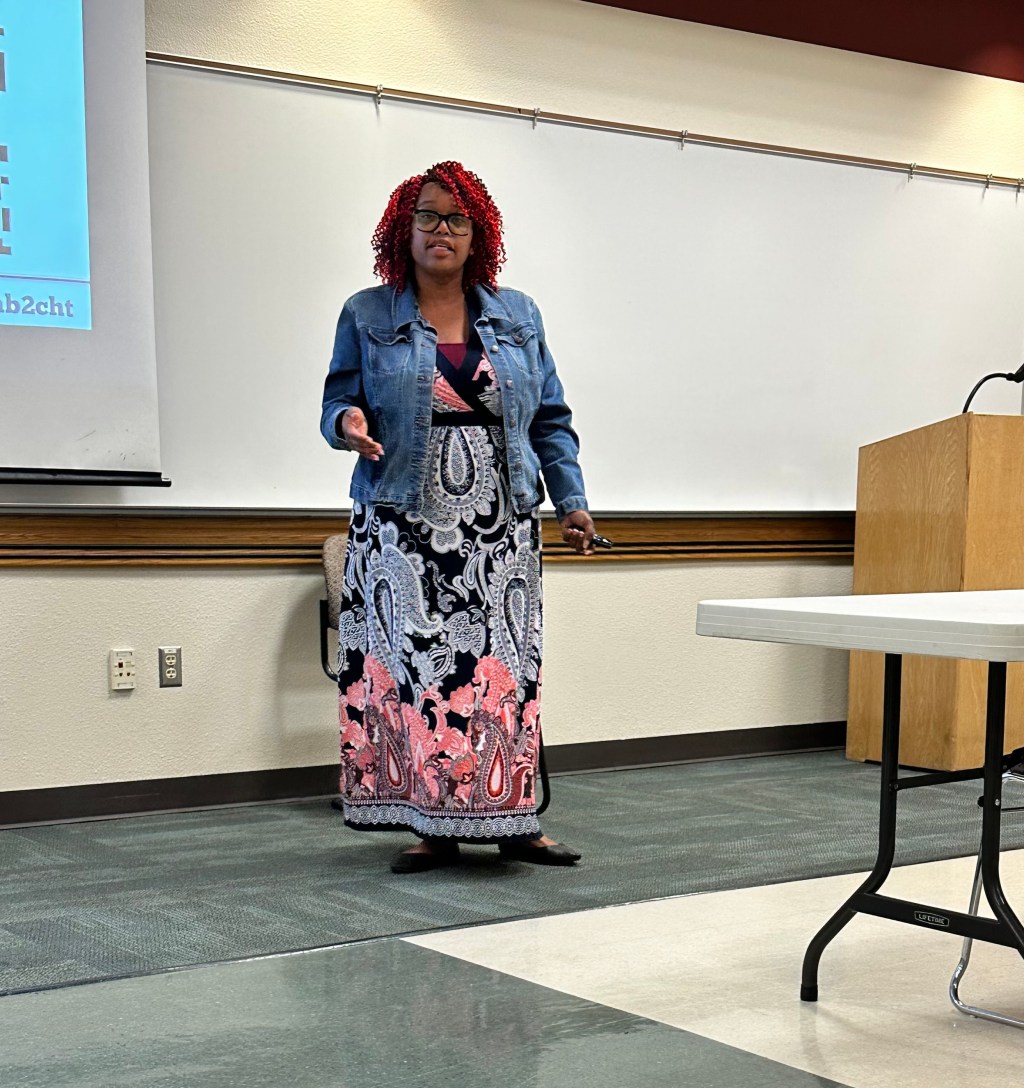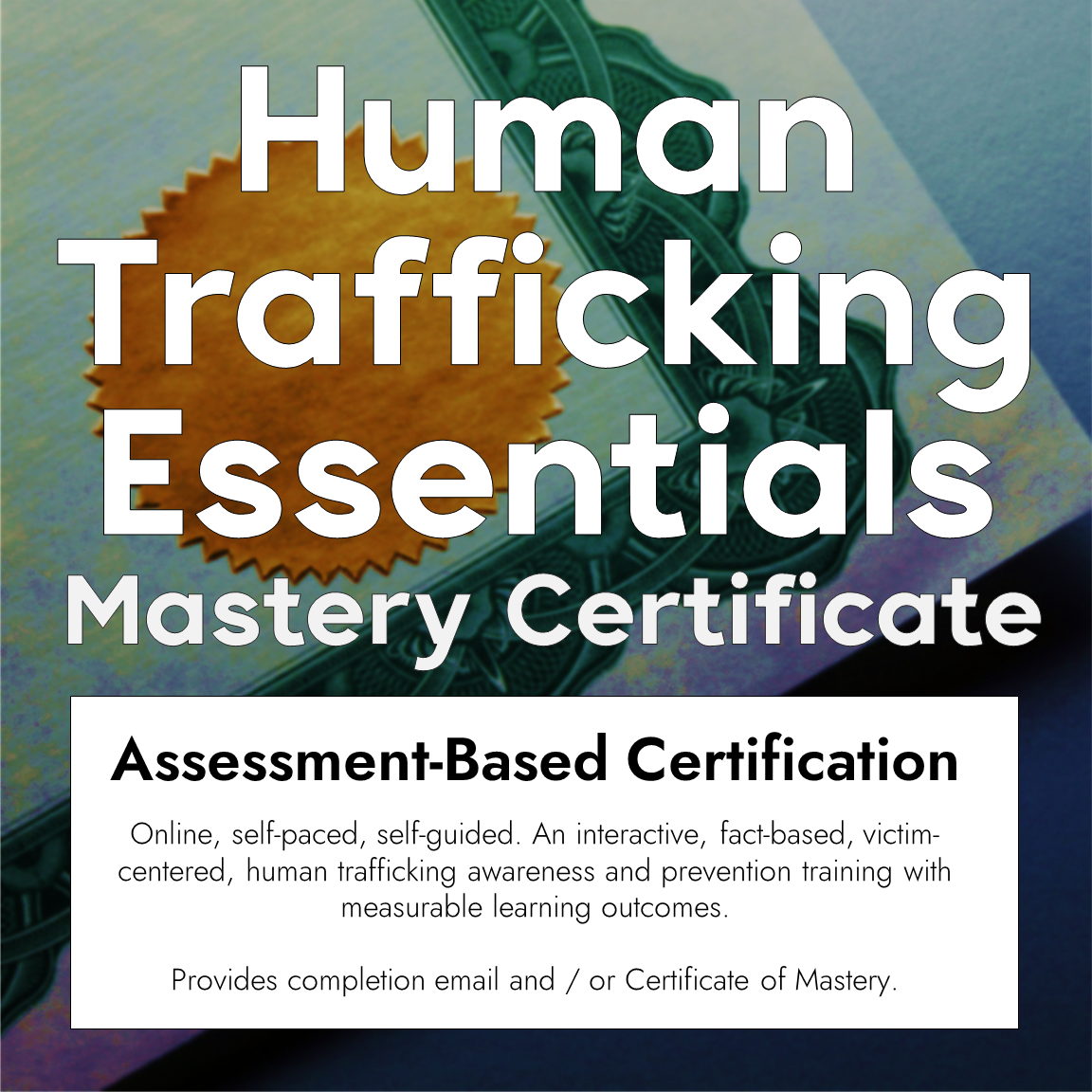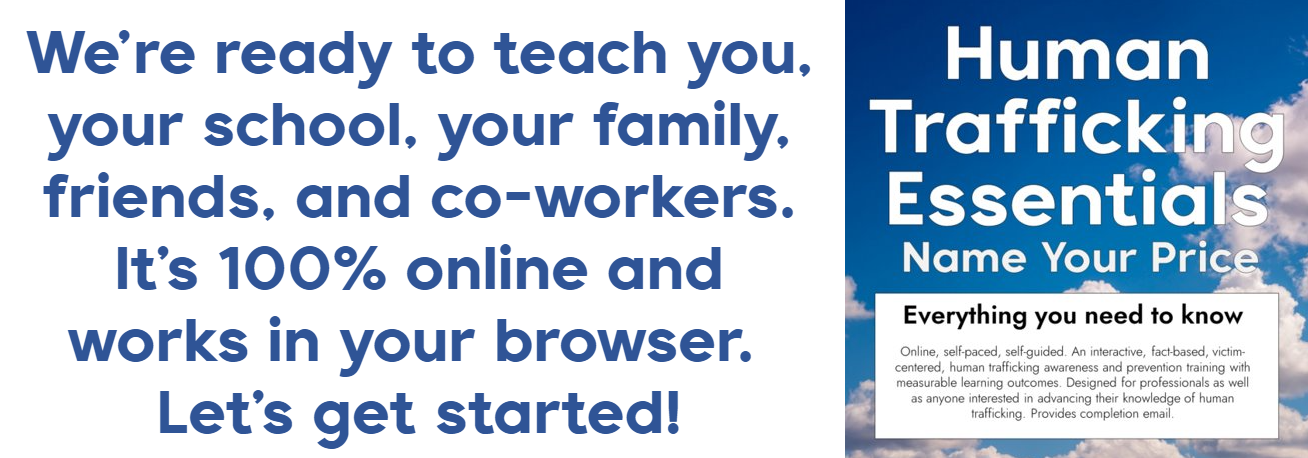‘Human traffickers don’t care what you look like’

Human trafficking in real life isn't what movies make it out to be. There's no superhero coming to save the day dramatically.
It doesn't just happen in foreign countries, it happens in the United States. It just doesn't happen in big cities, it happens in communities like Fort Morgan and Brush, too.
Anyone can become a victim of human trafficking no matter their gender, income status, age, or looks.
“Traffickers could care less about social identities,” said Kristina Wilburn, an Associate Manager, Training and Education Specialists with Laboratory to Combat Human Trafficking (LCHT). “They don't care about age, gender, religious background, sexual orientation: they're looking for factors of vulnerability.”
Wilburn spoke on Wednesday afternoon at Morgan Community College about the statistics, survivor stories, and what human trafficking is in a presentation put on by LCHT and the SARA House.
She started the presentation by stating there are two forms of trafficking. The first is commercial sex acts and the other is labor trafficking.
Per U.S. law there are three categories of trafficking: anyone under the age of 18 involved in commercial sex acts, anyone over 18 engaging in commercial sex acts through force, fraud, coercion, or those performing labor/services in conditions of involuntary servitude.
Wilburn said 30 percent of all traffickers are either parents or caregivers, 40 percent are intimate partners which total 70 percent of traffickers that are known by the victim/survivor. She continued that 25 percent of traffickers are someone survivors like a teacher or family friend.
“That means 95 percent of traffickers are individuals that the survivor knows before their exploitation,” she stated.
Wilburn shared stories of survivors she's worked with, the youngest one was an eight-year-old boy. She said from children, and teens to senior citizens, traffickers don't discriminate against any age.
When it comes to Colorado and factors that contribute to human trafficking, agriculture, ski resorts, marijuana grows, and Denver International Airport are just some of the factors. Wilburn said post-COVID-19 has seen an increase in trafficking survivors who were found and groomed online by a trafficker. She emphasized that parents need to monitor their children's internet and social media activities as best as they can.
To report child abuse or neglect call 1-844-264-5437. To contact Adult Protective Services call 970-542-3530 or 833-785-4992 and then press 6.
This “Eyes on Trafficking” story is reprinted from its original online location.
Fair Use Notice: The PBJ Learning Knowledge Vault is dedicated to advancing understanding of various social justice issues, including human trafficking and related topics. Some of the material presented on this website may contain copyrighted material, the use of which has not always been specifically authorized by the copyright owner. We are making such material available in our efforts to promote education and awareness of these important issues. There is no other central database we are aware of, so we put this together for both historical and research purposes. Articles are categorized and tagged for ease of use. We believe that this constitutes a ‘fair use' of any such copyrighted material as provided for in section 107 of the US Copyright Law. In accordance with Title 17 U.S.C. Section 107, the material on this site is distributed without profit to those who have expressed a prior interest in receiving the included information for research and educational purposes. For more information on fair use, please visit: “17 U.S. Code § 107 – Limitations on exclusive rights” on Cornell Law School's Legal Information Institute.

ABOUT PBJ LEARNING
PBJ Learning is a leading provider of online human trafficking training, focusing on awareness and prevention education. Their interactive Human Trafficking Essentials online course is used worldwide to educate professionals and individuals how to recognize human trafficking and how to respond to potential victims. Learn on any web browser (even your mobile phone) at any time.
More stories like this can be found in your PBJ Learning Knowledge Vault.
EYES ON TRAFFICKING
This “Eyes on Trafficking” story is reprinted from its original online location.
ABOUT PBJ LEARNING
PBJ Learning is a leading provider of online human trafficking training, focusing on awareness and prevention education. Their interactive Human Trafficking Essentials online course is used worldwide to educate professionals and individuals how to recognize human trafficking and how to respond to potential victims. Learn on any web browser (even your mobile phone) at any time.
More stories like this can be found in your PBJ Learning Knowledge Vault.

